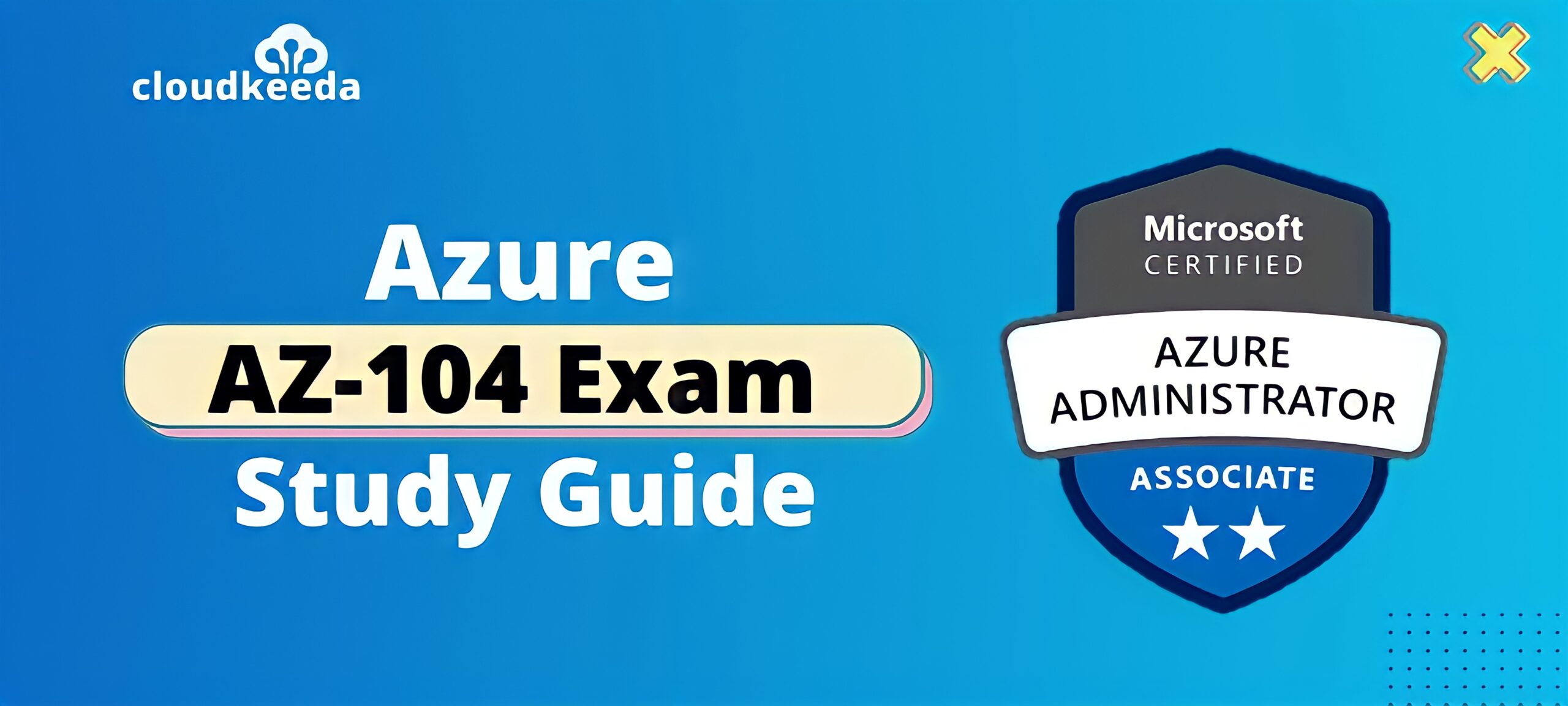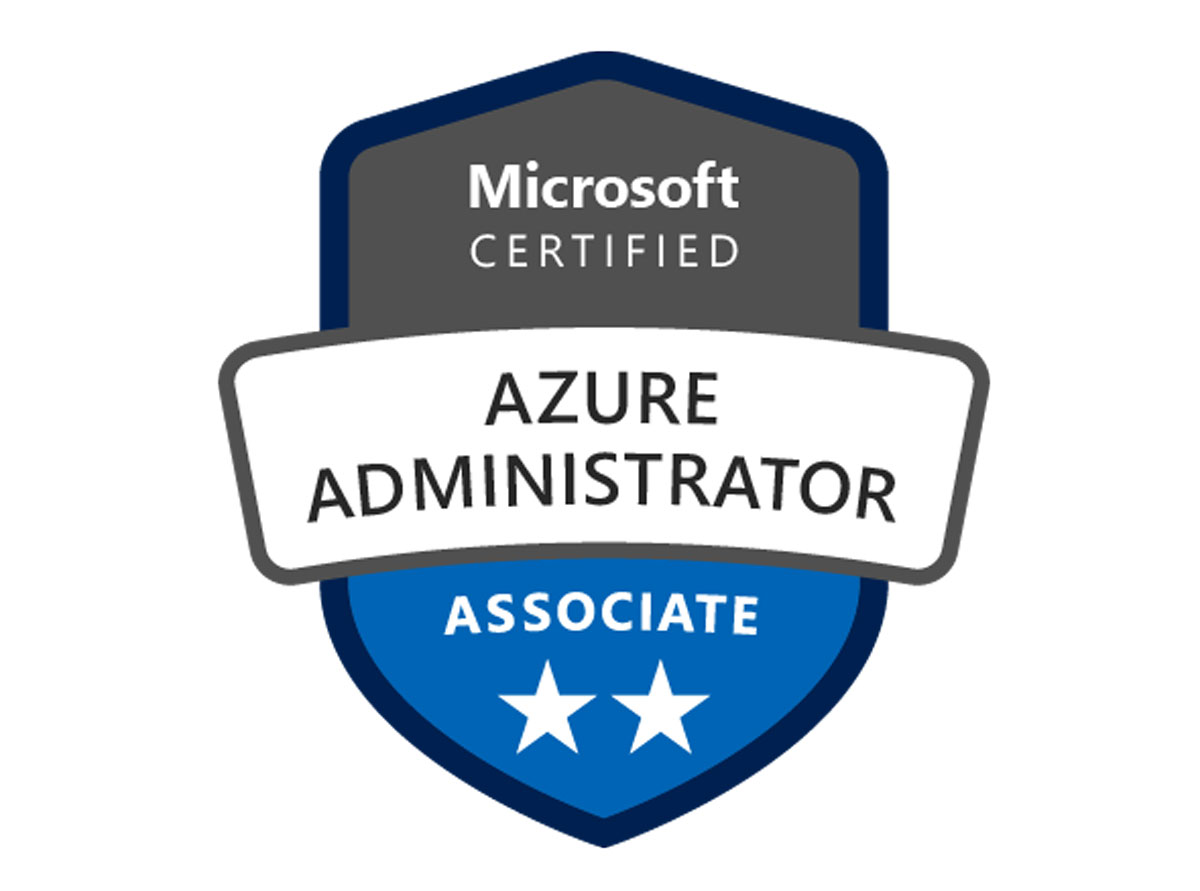Understanding Azure 104: An Overview
Azure 104 is a certification offered by Microsoft that validates the skills required to design, implement, and maintain Azure solutions. This credential is a critical step for professionals seeking to demonstrate their expertise in cloud computing and enhance their careers in this rapidly growing field. The Azure 104 exam focuses on the following key concepts:
- Implementing and managing storage using Azure Storage services
- Deploying and managing Azure compute resources, such as virtual machines and App Services
- Configuring and managing virtual networking using Azure Virtual Network and Azure VPN Gateway
- Monitoring and backing up Azure solutions using Azure Monitor and Azure Backup
By earning the Azure 104 certification, professionals can showcase their skills and knowledge in these areas and demonstrate their ability to design and implement Azure solutions that meet the needs of businesses and organizations. This credential is highly valued in the industry and can lead to exciting career opportunities and higher salaries.
Key Concepts Covered in Azure 104
The Azure 104 certification exam covers a wide range of topics related to designing, implementing, and maintaining Azure solutions. These topics include:
- Implementing and managing storage: This topic covers the creation, configuration, and management of Azure Storage services, including Blob Storage, File Storage, and Queue Storage. Candidates will also learn how to manage data security, access, and redundancy in Azure Storage.
- Deploying and managing Azure compute resources: This topic covers the deployment and management of Azure compute resources, such as virtual machines, App Services, and Azure Kubernetes Service. Candidates will learn how to configure and manage these resources, including scaling, availability, and security.
- Configuring and managing virtual networking: This topic covers the configuration and management of Azure Virtual Network and Azure VPN Gateway. Candidates will learn how to create and configure virtual networks, subnets, and network security groups, as well as how to connect on-premises networks to Azure.
- Monitoring and backing up Azure solutions: This topic covers the monitoring and backing up of Azure solutions using Azure Monitor and Azure Backup. Candidates will learn how to monitor Azure resources, create alerts, and analyze logs. They will also learn how to create and configure backups, as well as how to recover data in the event of a disaster.
By mastering these key concepts, Azure 104 certified professionals can demonstrate their ability to design and implement Azure solutions that meet the needs of businesses and organizations. This credential is highly valued in the industry and can lead to exciting career opportunities and higher salaries.
How to Prepare for Azure 104
Preparing for the Azure 104 certification exam requires a combination of studying, hands-on experience, and practice exams. Here are some tips and resources to help you prepare:
- Study materials: Microsoft provides a variety of study materials for the Azure 104 exam, including self-paced training courses, instructor-led training, and exam guides. These resources cover the key concepts and skills required to pass the exam.
- Hands-on experience: In addition to studying, it’s important to gain hands-on experience with Azure. This can be done through labs, exercises, and real-world projects. Hands-on experience will help you understand how to implement and manage Azure solutions in a practical setting.
- Practice exams: Practice exams are a great way to test your knowledge and prepare for the actual exam. Microsoft provides practice exams for the Azure 104 exam, which can help you identify areas where you need to improve.
- Exam format and structure: Understanding the format and structure of the Azure 104 exam is also important. The exam consists of 40-60 questions, and candidates have 120 minutes to complete it. The passing score is 700 out of 1000.
By following these tips and resources, you can increase your chances of passing the Azure 104 exam and earning your certification. Remember to stay up-to-date with the latest Azure technologies and best practices, as they are constantly evolving.
Exam Format and Structure
The Azure 104 exam is a performance-based exam that measures a candidate’s ability to design, implement, and maintain Azure solutions. The exam consists of 40-60 questions, and candidates have 120 minutes to complete it. The questions are scenario-based and require candidates to perform tasks using Azure.
- Question types: The Azure 104 exam includes multiple choice, multiple response, and drag-and-drop questions.
- Passing score: The passing score for the Azure 104 exam is 700 out of 1000.
- Time limit: The time limit for the Azure 104 exam is 120 minutes.
- Language: The Azure 104 exam is available in English, Chinese (Simplified), Japanese, and Korean.
To prepare for the Azure 104 exam, candidates should have a solid understanding of Azure technologies and best practices. This includes knowledge of implementing and managing storage, deploying and managing Azure compute resources, configuring and managing virtual networking, and monitoring and backing up Azure solutions. Candidates should also be familiar with Azure security, governance, and compliance.
By passing the Azure 104 exam, candidates can demonstrate their expertise in Azure and enhance their careers in cloud computing. This certification is highly valued in the industry and can lead to exciting career opportunities and higher salaries.
Real-World Applications of Azure 104 Skills
The skills learned in the Azure 104 certification exam can be applied in real-world scenarios to design and implement Azure solutions for businesses and organizations. Here are some examples:
- Designing and implementing Azure storage solutions: With Azure 104 skills, professionals can design and implement Azure storage solutions that meet the needs of businesses and organizations. This includes implementing and managing Azure Blob Storage, Azure File Storage, Azure Queue Storage, and Azure Table Storage.
- Deploying and managing Azure compute resources: Azure 104 certified professionals can deploy and manage Azure compute resources, such as virtual machines, App Services, and Azure Kubernetes Service. This includes configuring and managing these resources, including scaling, availability, and security.
- Configuring and managing virtual networking: Azure 104 skills can be used to configure and manage Azure Virtual Network and Azure VPN Gateway. This includes creating and configuring virtual networks, subnets, and network security groups, as well as connecting on-premises networks to Azure.
- Monitoring and backing up Azure solutions: Azure 104 certified professionals can monitor and back up Azure solutions using Azure Monitor and Azure Backup. This includes creating and configuring backups, as well as recovering data in the event of a disaster.
By applying Azure 104 skills in real-world scenarios, professionals can help businesses and organizations take advantage of the benefits of Azure, including scalability, reliability, and cost-effectiveness. These skills are highly valued in the industry and can lead to exciting career opportunities and higher salaries.
Career Opportunities for Azure 104 Certified Professionals
Earning the Azure 104 certification can open up a wide range of career opportunities in the field of cloud computing. Here are some of the job titles, salaries, and industry demand for Azure 104 certified professionals:
- Azure Solutions Architect: This job title involves designing and implementing Azure solutions for businesses and organizations. According to Glassdoor, the average salary for an Azure Solutions Architect in the United States is $137,973 per year.
- Azure DevOps Engineer: This job title involves designing and implementing Azure DevOps solutions for businesses and organizations. According to Indeed, the average salary for an Azure DevOps Engineer in the United States is $114,772 per year.
- Azure Cloud Administrator: This job title involves managing and maintaining Azure infrastructure for businesses and organizations. According to ZipRecruiter, the average salary for an Azure Cloud Administrator in the United States is $88,572 per year.
The demand for Azure 104 certified professionals is high, as more businesses and organizations are moving their infrastructure to the cloud. According to a report by Global Market Insights, the cloud computing market is expected to reach $800 billion by 2025, with a compound annual growth rate of 16.3%.
By earning the Azure 104 certification, professionals can demonstrate their expertise in Azure and enhance their careers in cloud computing. This certification is highly valued in the industry and can lead to exciting career opportunities and higher salaries.
Maintaining and Updating Azure 104 Certification
Maintaining and updating your Azure 104 certification is crucial to ensure that your skills and knowledge are up-to-date with the latest Azure technologies and best practices. Here are the steps required to maintain and update your Azure 104 certification:
- Continuing education: Microsoft requires Azure 104 certified professionals to complete continuing education every year to maintain their certification. This includes completing online courses, attending workshops, and participating in webinars.
- Recertification: Azure 104 certification is valid for two years. To recertify, you must retake and pass the Azure 104 exam. Microsoft recommends recertifying every two years to ensure that your skills and knowledge are up-to-date with the latest Azure technologies and best practices.
- Stay up-to-date with Azure technologies: Azure technologies are constantly evolving, and it’s essential to stay up-to-date with the latest features and functionalities. Microsoft provides a variety of resources to help you stay up-to-date, including online courses, webinars, and documentation.
By maintaining and updating your Azure 104 certification, you can ensure that your skills and knowledge are up-to-date with the latest Azure technologies and best practices. This can help you stay competitive in the field of cloud computing and enhance your career opportunities.
Conclusion: The Value of Azure 104 Certification
Earning the Azure 104 certification is a significant achievement for professionals in the field of cloud computing. This certification validates your skills and knowledge in designing, implementing, and maintaining Azure solutions, making you a valuable asset to businesses and organizations. Here are some of the benefits and value of Azure 104 certification:
- Demonstrates expertise: Azure 104 certification demonstrates your expertise in Azure technologies and best practices, making you a valuable asset to businesses and organizations.
- Increases job opportunities: Azure 104 certification can increase your job opportunities and career advancement in the field of cloud computing. According to a report by Global Knowledge, Azure certified professionals earn an average salary of $112,000 per year.
- Stay up-to-date with Azure technologies: Azure 104 certification requires you to stay up-to-date with the latest Azure technologies and best practices, ensuring that your skills and knowledge are relevant and in-demand.
In conclusion, Azure 104 certification is a valuable credential for professionals in the field of cloud computing. It demonstrates your expertise, increases job opportunities, and ensures that your skills and knowledge are up-to-date with the latest Azure technologies and best practices. We encourage readers to pursue this credential to enhance their careers in cloud computing.







